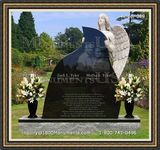|
Basics You Need To Know About Funeral Notices
Quite a bit of preparation is required when planning someone's burial services. After all details are in place, a public announcement containing all pertinent information is usually made. Formal funeral notices are the easiest way to let a large amount of people know of an individual's passing and how and where final respects may be paid.
This is not the same thing as an obituary. That condensed biography of the person who has died is generally written by a newspaper staffer and follows a specific formula. The notice, however, is a paid submission created by the family which contains information regarding the individual as well as the services planned in their honor.
Such announcements are typically posted in local papers but it is not uncommon for them to be made via personal invitations or emails. There are two main ways for them to be done. The simple form states name, location and time only, while the other choice is filled with personal information, details on all services and sometimes a photograph of the deceased.
Key facts are always included in the announcement. These are the individual's full name including maiden and commonly used nicknames by which the individual was known. Other details such as their city of residence, date of death, family members surviving them and the time and location of services are also mentioned in the article.
If the family chooses, additional details about the cause of death may be included as well. Listing the deceased's place of birth, schools attended, employment, religious affiliation, civic organizations, military service, special interests and hobbies help others to identify with the individual. Some even opt to acknowledge the pallbearers and officiant.
If services are to be for family only, this should be clearly noted in the announcement. When charitable donations are requested in lieu of flowers, that stipulation can be stated in this piece. Funeral notices are more than just a formal way to let others know of a passing, they are a way to honor the dead.
|
|



























